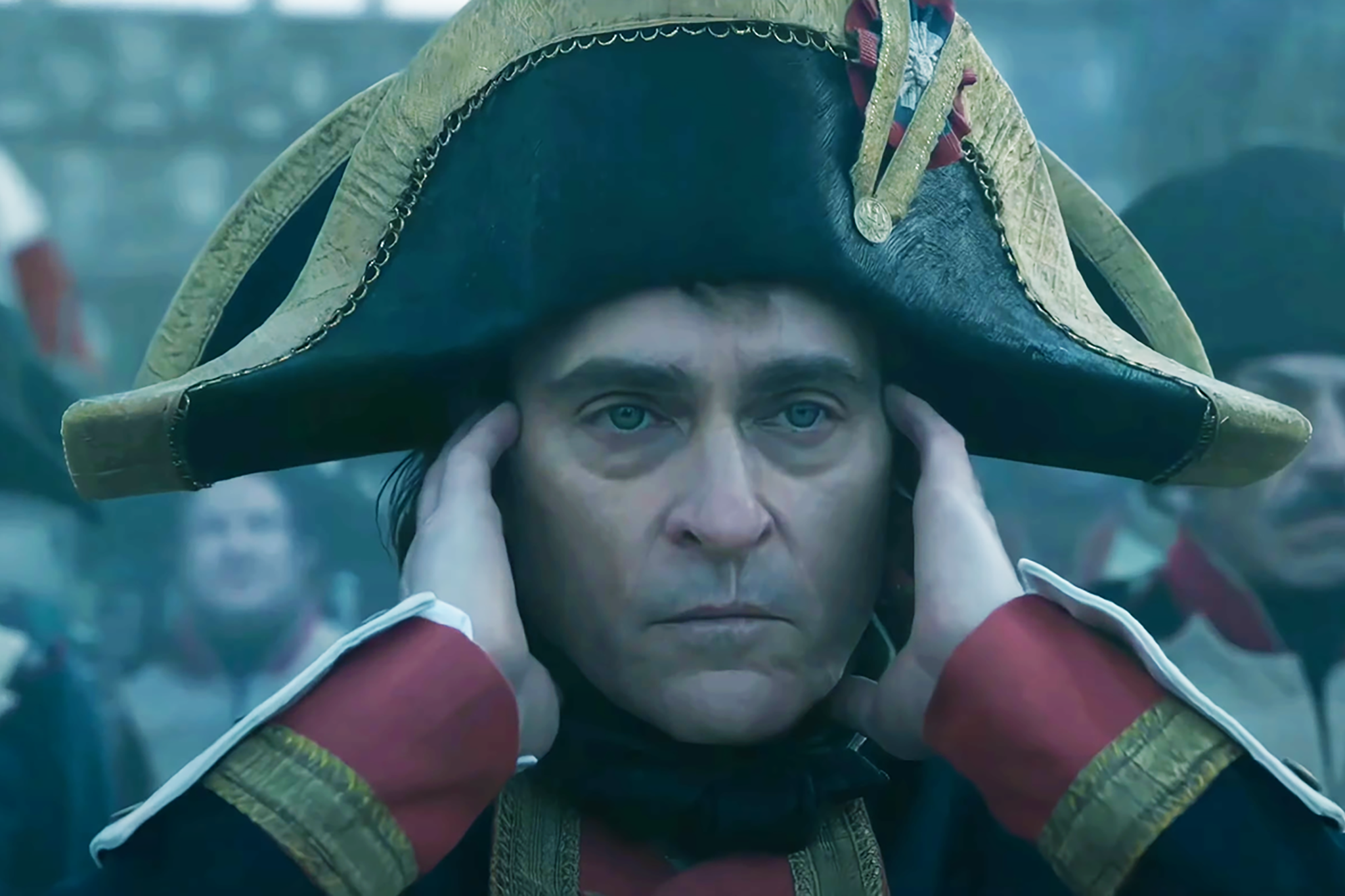Napoleon’s dialogue isn’t ‘laughably bad’ – it’s supposed to be that way
Ridley Scott’s new epic has divided critics and audiences, with some detractors taking aim at the film’s screenplay. If you’re laughing in mockery at some of the goofier moments in ‘Napoleon’, you may be missing the joke, writes Louis Chilton


Napoleon has conquered and Napoleon has divided. The historical epic, directed by Ridley Scott and starring Joaquin Phoenix as the war-waging leader of France, has proved a somewhat unexpected hit at the box office since its release last week, surging past Disney’s Wish to take the No 1 spot globally. Reactions, though, have been decidedly mixed. The Independent’s Clarisse Loughrey described it as “full of verve, spectacle and machismo” in a four-star review, while The Washington Post awarded it one-and-a-half stars, writing that it feels in stretches “like a mash-up of Leo Tolstoy, Edward Albee and Wikipedia”. These responses are pretty much of a piece with much of Scott’s late-career output, which has inspired adulation and derision in roughly equal measure. House of Gucci was largely ridiculed; The Last Duel was mostly vaunted. Alien: Covenant and All the Money in the World split critics down the middle.
Dissenters have generally focused on a few choice aspects of Napoleon. For one, there’s the dubious matter of historical accuracy; wholly invented scenes such as Napoleon’s army firing ballistics into the Egyptian pyramids have faced particular scrutiny. Scott’s own response to this furore has been unperturbed. (“When I have issues with historians, I ask: ‘Excuse me, mate, were you there? No? Well, shut the f*** up then.’”) For others, the problems with the film aren’t so much ethical as aesthetic: a quick scroll through social media will uncover no end of cinemagoers carping about Napoleon’s “unintentionally hilarious” dialogue. All opinions are valid, of course – but the idea that the screenplay’s comedy is unintentional couldn’t be wider of the mark.
Ultimately, Phoenix’s Napoleon is a figure in whose flaws we are invited to revel. To observe, to condemn – and to laugh at
It might be a stretch to describe Napoleon as a comedy – much of its runtime is, after all, devoted to harrowing and limb-manglingly violent battle sequences – but it is often, and deliberately, very funny. Much of the comic impetus stems from Napoleon’s turbulent marriage to Josephine, played in the film by Vanessa Kirby. This is Napoleon Bonaparte as sexual dunce, Napoleon as petulant cuck. His marital disagreements stem partly from his and Josephine’s inability to conceive. All the while, phallic symbols abound: pens; sabres; cannons firing with orgiastic abandon. It’s a film that is far from subtle in its imagery, but it never tries to be.
One of the funniest scenes sees Napoleon confront his wife over dinner about her inability to conceive. She hits back at him, prodding at his weight. He defends his appetite, telling her, “Destiny has brought me this lamb chop.” It’s a line that’s delivered entirely straight, but is so obviously ludicrous that the comic intentionality is clear; moments later, the scene devolves into the dysfunctional spouses flinging food at one another across the dinner table. In a later scene, Napoleon is seen confronting some of his political enemies, shouting irascibly at an English negotiator: “You think you’re so great because you have boats!”
These are just two of the lines that audience members have flagged as evidence of Napoleon’s dialogical shortcomings. (The Post’s review contemptuously notes that the “boats” line was met with laughter in a press screening.) It’s true they are laughable, but it would be silly to assume that they were written in po-faced earnestness. Phoenix’s Napoleon is in many ways a ridiculous figure, a figure of bathos rather than tragedy. There are tragic elements to his story, yes – to his and Josephine’s fraught relationship, for instance. (Beneath the extramarital affairs, the psycho-sexual game-playing, there is something of a warped, but genuine, connection, and Josephine’s eventual death is handled with a sincere graveness.) But Napoleon never courts the audience’s sympathy too hard. Ultimately, Napoleon’s Bonaparte is a figure in whose flaws we are invited to revel. To observe, to condemn – and to laugh at. This was also true of the Gucci family in House of Gucci, another intentionally comic film that was disparaged – and misunderstood – by audiences who didn’t know what to make of the film’s camp extravagance.
For all its dabbling with the ridiculous, Scott’s film knows when to stop with the levity. Napoleon’s closing punchline is a sober reminder of just what Bonaparte’s hubris cost – around three million French lives. One of the film’s great achievements is being able to balance the blunt awfulness of his legacy with the laughable oddness of his personality. The problem isn’t bad writing – it’s bad faith arguments.
‘Napoleon’ is in cinemas now



Join our commenting forum
Join thought-provoking conversations, follow other Independent readers and see their replies
Comments